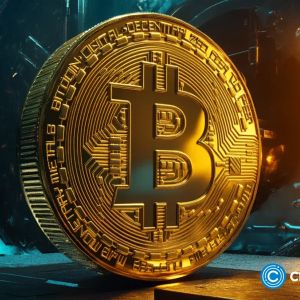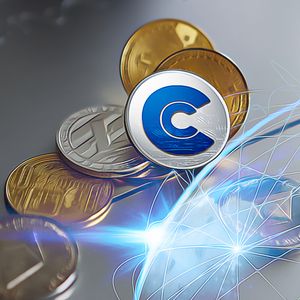BlackRock CEO Larry Fink warned that the US dollar risks losing its status as the world's reserve currency to digital assets such as Bitcoin if the country fails to resolve its growing debt crisis. In his annual letter to investors today, Fink cited the rapid expansion of the U.S. national debt and the rising burden of interest payments as major threats to the dollar's global dominance. Fink noted that since the Times Square debt clock was first introduced in 1989, the U.S. national debt has increased at three times the rate of GDP growth. This year alone, interest payments on the national debt are expected to exceed the nation’s defense budget by $952 billion. If this trend continues unchecked, mandatory government spending and debt service could consume all federal revenue by 2030, creating a permanent deficit, he warned. Fink expressed support for digital assets, but warned that their rapid growth could undermine the U.S. economic advantage. “I’m not against digital assets, to be obvious,” he said. “But two things can be true at the same time: Decentralized finance is an extraordinary innovation that makes markets faster, cheaper, and more transparent. However, that same innovation could lead investors to view Bitcoin as a safer asset than the dollar.” The BlackRock CEO also touched on BlackRock’s recent success in the crypto space, noting that the launch of its US spot Bitcoin exchange-traded fund (ETF) IBIT was the largest ETF launch in history. In less than a year, IBIT has amassed over $50 billion in assets under management. The ETF is currently the third-largest asset aggregator in the industry, behind only S&P 500 index funds. Fink explained that more than half of the demand for IBIT comes from individual investors, with three-quarters of buyers having never owned an iShares product before. Related News: BREAKING: Binance Announces It Will List Anticipated Altcoin on Futures Earlier this year, Fink predicted that if investors allocated just 2% to 5% of their portfolios to Bitcoin, the BTC price could eventually reach $700,000. Beyond Bitcoin, Fink said tokenization — a process that digitizes real-world assets like stocks, bonds and real estate so they can be traded on blockchain networks — has transformative potential. He likened the shift to the shift from letters to email, arguing that tokenization could significantly increase market efficiency. “Every stock, every bond, every fund, every asset could be tokenized,” Fink said. “If they could, it would revolutionize investing. There would be no need for markets to close, transactions that currently take days would happen in seconds, and billions of dollars currently stranded by clearing delays could be immediately reinvested into the economy, driving more growth.” Fink also noted the role of tokenization in democratizing investing by allowing fractional ownership, easier shareholder voting, and broader access to higher-yielding assets. He believes this innovation could bridge the gap between public and private markets, giving smaller investors access to opportunities traditionally reserved for the wealthy. While acknowledging widespread economic concerns, Fink offered a reassuring message to investors that such periods of uncertainty are not new. He noted that financial markets have historically weathered turbulence thanks to human resilience and the strength of capital markets. He urged policymakers to focus on sustainable financial strategies while embracing financial innovation to maintain economic stability. *This is not investment advice. Continue Reading: 11.5 Trillion Dollars Managing BlackRock CEO Larry Fink Makes Bitcoin Statements: “If the Debt Crisis Is Not Solved, BTC…”
 Sonic TVL Crosses $1 Billion
Sonic TVL Crosses $1 Billion









